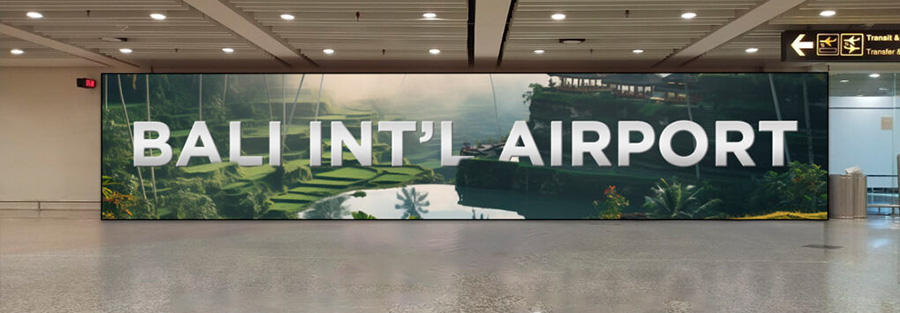Indonesia’s New Immigration Regulations: A Comprehensive Guide for 2025
The Indonesian government has introduced a significant overhaul of its immigration regulations in 2025, with the aim of simplifying processes, attracting skilled talent and investment, and strengthening oversight of foreign nationals. These new rules, enacted through the Minister of Immigration and Corrections Decree No. M. IP-08. GR. 01.01/2025, consolidate and clarify visa classifications and introduce new digital tools for a smoother travel experience.
Here’s a breakdown of the key changes and what they mean for visitors and residents.
1. The New “All Indonesia” Digital Platform
A major reform for all travelers entering Indonesia is the mandatory use of the “All Indonesia” digital platform. This integrated online system streamlines the entry process by combining the formerly separate requirements for immigration, customs, and health declarations into a single, pre-arrival application.
- What it does: The platform allows travelers to complete their Arrival Card, Health Declaration, and Customs Declaration up to three days before their flight.
- Benefits: This eliminates the need to fill out multiple paper forms upon arrival, resulting in a faster, more efficient, and more secure process at airports and seaports.
- Important note: The “All Indonesia” platform is for administrative declarations and is not a visa. Travelers must still secure the appropriate visa or entry permit before their trip.
2. Visa and Stay Permit Simplification
The new decree has simplified the visa classification system, reducing the total number of visa indices from 133 to 110. Several overlapping categories have been merged to create a more straightforward framework.
- Consolidated Visas: The many sector-specific work visas (e.g., E23B–E23W) have been unified under a single E23 General Work Visa. Similarly, categories for tourism, business, and medical visits have been merged into broader groups.
- New Visa Categories: To support Indonesia’s economic and social development, new visas have been created:
- C7C Visa: Specifically for arts, culture, and skills-based activities, clarifying rules for creative professionals, such as cultural performers, chefs, and influencers.
- E23Y Visa: A new category for professionals in the digital economy, including those in AI, data science, cybersecurity, and software development.
- E28F & E28G Visas: Dedicated visas to support foreign investment and representation in Ibu Kota Nusantara (IKN), Indonesia’s new capital.
- Expansion of Rights: The new regulations allow students (E30 Visa) and family visa holders (E31–E32) to receive compensation, a right previously restricted.
3. Changes to Visa on Arrival (VoA) and Single-Entry Visas
The 2025 regulations bring notable updates to short-term visitor visas.
- Visa on Arrival (VoA): The VoA (B1 visa) allows for a stay of up to 30 days, which can be extended once for an additional 30 days. The extension process now requires an in-person visit to an immigration office for biometrics and an interview.
- Single-Entry Visas: The new framework for single-entry visas (C visa) provides greater clarity.
- Duration: These visas grant an initial stay of 60 days and can be extended twice, each for another 60 days, for a total possible stay of up to 180 days.
- No Work: It is crucial to note that holders of single-entry visas are prohibited from engaging in any work-related or income-generating activities. Violations can lead to fines, deportation, and an entry ban.
- Trial Work Visa (C18): A new non-extendable 90-day C18 visa has been introduced for foreign workers undergoing a probationary or skills-assessment period with a sponsor. This visa is designed for short, time-bound work trials and cannot be used again with the same sponsor.
4. Stricter Enforcement and New Requirements
The new regulations emphasize stricter enforcement to prevent visa misuse and unauthorized activities.
- In-Person Extensions: Foreign nationals applying for an extension of their stay permit (e.g., ITAS/KITAS or a short-term visit visa) are now required to visit an immigration office in person. This involves providing biometric data (fingerprints and photo) and undergoing an interview.
- Increased Oversight: This change is part of an effort to minimize stay permit abuse and hold sponsors accountable for the foreign nationals they guarantee. The government has reported a significant increase in enforcement actions against individuals and companies found in violation of immigration laws.
- Penalties: Penalties for overstaying remain a fine of IDR 1,000,000 per day. Prolonged overstays, illegal work, or misuse of a visa can result in deportation and a re-entry ban ranging from six months to a permanent prohibition.
These Indonesia’s New Immigration Regulations signal Indonesia’s commitment to modernizing its immigration system to better serve its economic goals while also strengthening administrative controls. Foreigners traveling to or residing in Indonesia are strongly advised to be aware of these changes and ensure they are on the correct visa for their intended activities.


